UN/Austria Symposium 2023 | Space for Climate Action Training
Land in Focus MOOC
Training provider: European Space Agency (ESA) and EO-College
Description: This Massive Open Online Course (MOOC) consists of a series of online learning materials that will give you insights on the potential of remote sensing technologies for applications over land surfaces. No prior knowledge of remote sensing or earth observation is required and users can complete the courses at their own pace. The courses are all free of charge.
Basic course
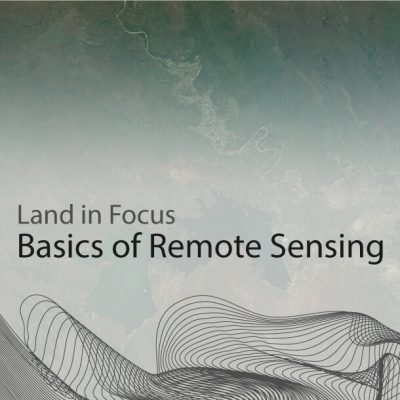
The first course of the series is the core content which provides you with the fundamentals of remote sensing technology as well as the tools needed to handle real-life scenarios. By the end of this course you will be able to:
- Understand fundamental principles of remote sensing
- Search and gather remote sensing data
- Understand the various dimension of remote sensing data
- Process remote sensing imagery
- Understand essential image analysis techniques
- Gain access to remote sensing-friendly cloud services and software
Practical courses with hands-on component
The basic course will enable you to follow the subsequent materials of the MOOC; practical courses based on real-life case studies, where you can learn to apply your theoretical knowledge to real-life scenarios, for a variety of topics.
Note that you do not have to have completed any of the previous or other courses to follow any of these, and they can therefore be skipped or done in any order desired.
In the following courses, you will learn:
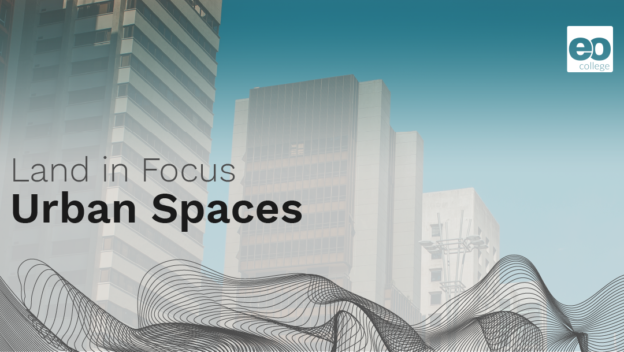
- How to map urban areas using high-resolution data in Google Earth Engine
- How to quantify urban heat islands in cities in Google Earth Engine
- How to visually delineate slum areas
- How to predict slum areas using an advanced classification algorithm in R for the city of Lagos in Nigeria
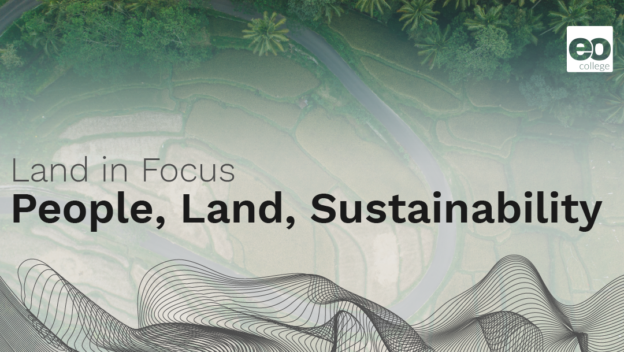
- Land Cover Data & Uses: Create land cover maps for various applications including creating a discrete land cover map, for a forest monitoring application, and for land cover change monitoring.
- Land Degradation: Quantify extents of land degradation in the Free State, South Africa.
- Carbon Accounting: Estimate carbon emissions for an area in Tanzania.
- Land Ownership and Management: Use changes in land cover as an indicator for possible changes in land ownership in Brazil and Zimbabwe.
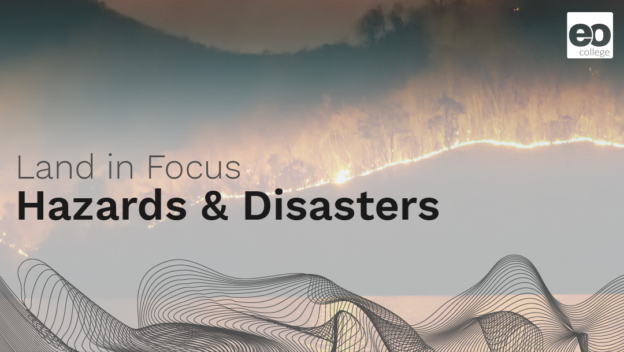
- Droughts: Monitor drought hazard and drought impact in South Africa.
- Floods: Estimation of the extent of an extreme flood event in Iran.
- Fires: Assess fire intensity and burn severity in Bolivia.
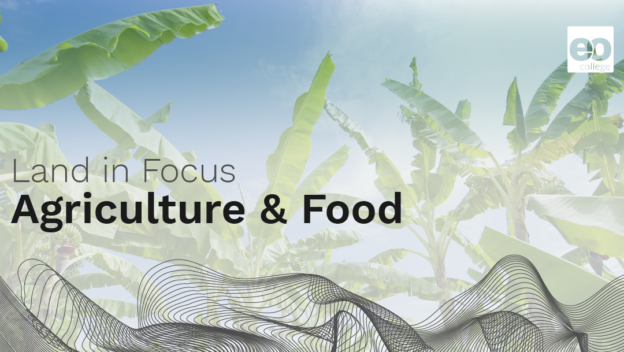
- Commodity Mapping: Identify the commodities palm, rubber, cocoa and create a commodity map for a region in Ghana.
- Crop Monitoring: Biophysical Parameters Estimate growth parameters of potatoes throughout the growing season on a research plot in the Netherlands.
- Food Security : Learn how to support farmers in western Kenya in their decisions by monitoring crops using radar and multispectral data and compare them to ground truth data.
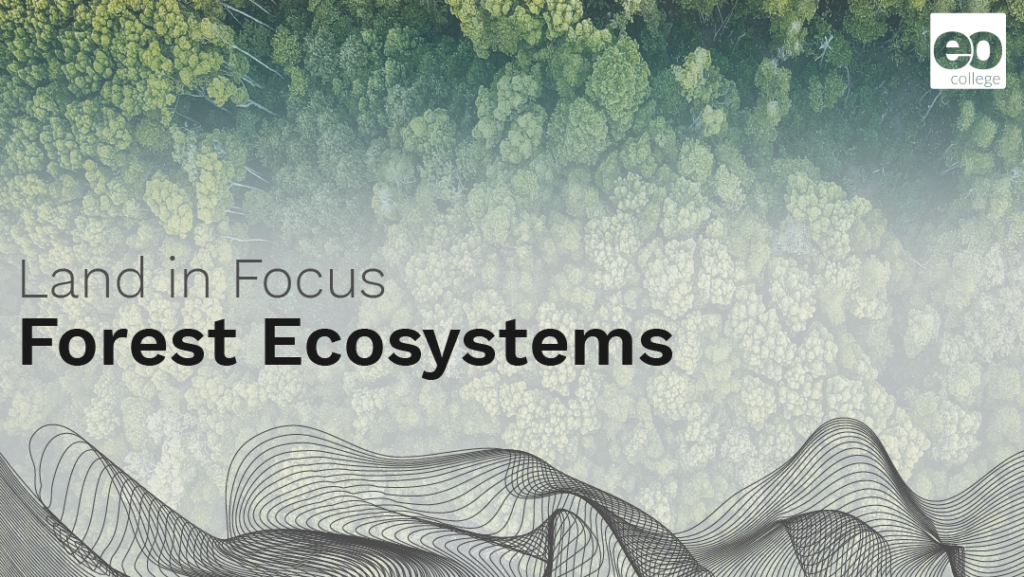
- Forest Monitoring: Identify deforestation events using optical data (Mozambique) and radar data (Republic of Congo)
- Biomass: Assess above ground biomass map accuracy and quantify these uncertainties using the PlotToMap tool (Global)
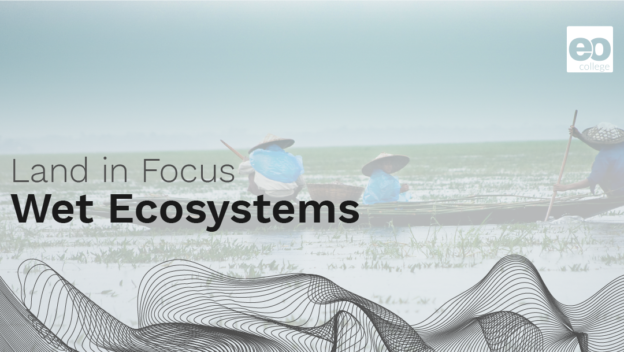
- Soil Moisture Estimation: Estimate soil moisture based on Sentinel-1 data in South Africa.
- Wetland Monitoring: Classify map country-specific mangrove extent for Guyana using Google Earth Engine.
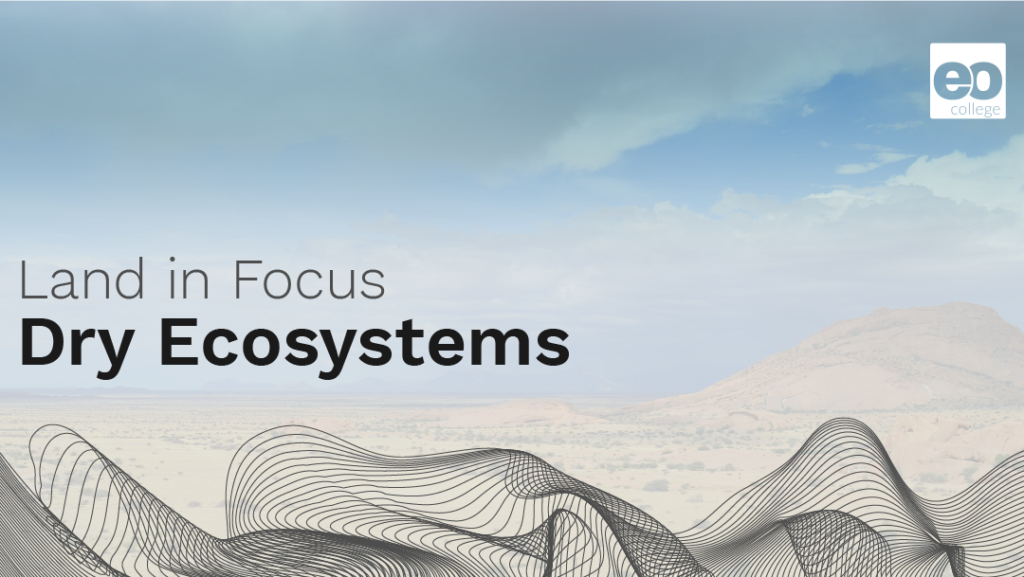
- Invasive Species Mapping: Learn about the meaning of invasive species and dive into the mapping of Slangbos vegetation in South Africa.
- Woody Cover Mapping: Understand the importance of woody vegetation in savanna environments and estimate amounts of fractional woody cover in South Africa.
Format: This self-paced MOOC consists of 8 courses with variable number of lessons within each course. Depending on your existing knowledge, each lesson will take 1 to 2 hours to complete.
Target audience: Anyone interested in remote sensing technologies and its application over land surfaces.
Prerequisites: A basic knowledge of remote sensing is desirable but not required. Participants with no prior experience in remote sensing are encouraged to view the first course Basics of Remote Sensing prior to the commencing the other courses.
Language: English.
Registration: Registration is open. You may start the course at any time. Click here to register.
Certificate: You will receive a certificate of achievement for completing the course.
Resources: For more information about the course, please visit the EO-College webpage.
